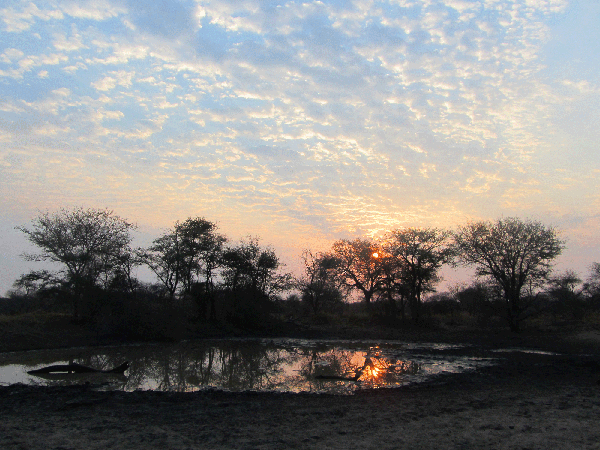People travel for a variety of reasons, but I think the underlying desire to see unfamiliar places, discover the natural beauty of the world and to breathe the fresh air of the outdoors is common throughout. People travel to Africa largely for the wildlife, the exceptional, diverse landscapes, and the richness of ancient cultures. Humans that live according to the tune of the earth, and extraordinary animals that have paced the surface of this continent for thousands of years are sought after by travellers, wanderers and adventurers. We have a responsibility to play the role of ‘caretaker’ if we wish to cherish the role of ‘admirer’ for years to come, and luckily for the roamers out there, there are plenty of opportunities for us to make sure that for whatever reason we are travelling, we are doing what we can to protect and conserve.

For those embarking on culinary journeys:
Some people travel purely for the pleasure of eating and commit to a taste bud discovery of the world. Aside from the fact that organic, additive-free food is far healthier for you, its production also requires local input. Make sure that where you are choosing to eat on your travels that these places employ local suppliers and in doing so, rest assured that you are contributing to the health of the people whose land you have travelled to see. A good indication of an eco-savvy kitchen is the use of a compost heap, a sustainable and conservative use of water, and efficient waste disposal. As with most delicious dishes, the contribution of a good wine often rounds off the experience perfectly. Consider varieties that are bottled in PET (polyethylene terephthalate) canisters, which use 50% less packaging energy than glass and in bulk, reduce negative shipment effects by 25% due to smaller size and weight.
For those jet-setting on business:
Short distances, flown by plane, fairly often. If you’ve got an appreciation for city flavour, make use of the local transport, which often, in Africa, is a novel rickshaw. Even better, hire a bicycle, or stretch those legs and walk when possible; there can’t be a better way to spruce up for the day than to drink in the scenes of a foreign city. Choose your accommodation based on its environmental ethics. Hot water bottles instead of electric blankets, water-saving fixtures, energy-efficient lighting and recycling disposals are amongst the modest changes to look out for. Make use of coffee mugs or flasks and reusable water bottles so as to eliminate the use of paper and plastic drinking vessels. Bear in mind that your own preparation for travel has a great effect, too: Pack light and reduce the weight of your carbon footprint…literally.
For those seeking a destination wedding:
A wedding is traditionally the extravagant, symbolic step into a life shared with one’s soul mate, and showcases what that shared life will represent. Travelling to a beautiful destination is romantic and memorable and often it incorporates local flair. Consider nThambo Tree Camp in the Klaserie Private Nature Reserve for a location that will lessen the impact of the big day on the environment. For a spectacular arrival, indulge in the fairy-tale with a horse-drawn carriage, or tandem bicycle. Consider flowers for their locality, as well as their water maintenance; succulents and bamboo are eco-friendly and present equally beautiful alternatives to blossom bouquets. Biodegradable confetti, such as dried rose petals and birdseed, puts a unique spin on one’s departure from the venue.


For those heading off on honeymoon:
This is bound to be one of the most romantic times in one’s life, and it is considerably fair to assume that those heading to Africa in search of this romance are seeking nature, the outdoors, quiet nights and starry skies. When selecting your post-wedding accommodation somewhere amid the magnificence of Africa, head somewhere that offers you an elevated bed in the treetops. Kingston Treehouse in the Lion Sands Reserve in South Africa’s Kruger National Park is something unforgettable. Eliminating the impact of a ground level establishment and providing idyllic seclusion and private views. Opt for solar-powered lodges, country-style bucket showers and, of course, candlelight. Everlasting soy candles are aromatic and ambient, while hypnotically demonstrating renewable energy.


For those on quests of self-discovery:
On a journey of discovery and cultural indulgence, one could agree that this be the perfect time to partake in community upliftment. Help plant trees in Kenya where reforestation is working wonders for local prosperity. Provide your manual labour in exchange for food and accommodation and enrich your soul with education about sustainability and the environment, creating awareness and making a change. Wildlife capture and data collection help sustain animal populations in game reserves; an activity that would attract the adventurous, single traveller. A keen photographer can dedicate their reel to local eco-initiatives, photographing and reviewing various projects and movements working towards a greener future for Africa.

